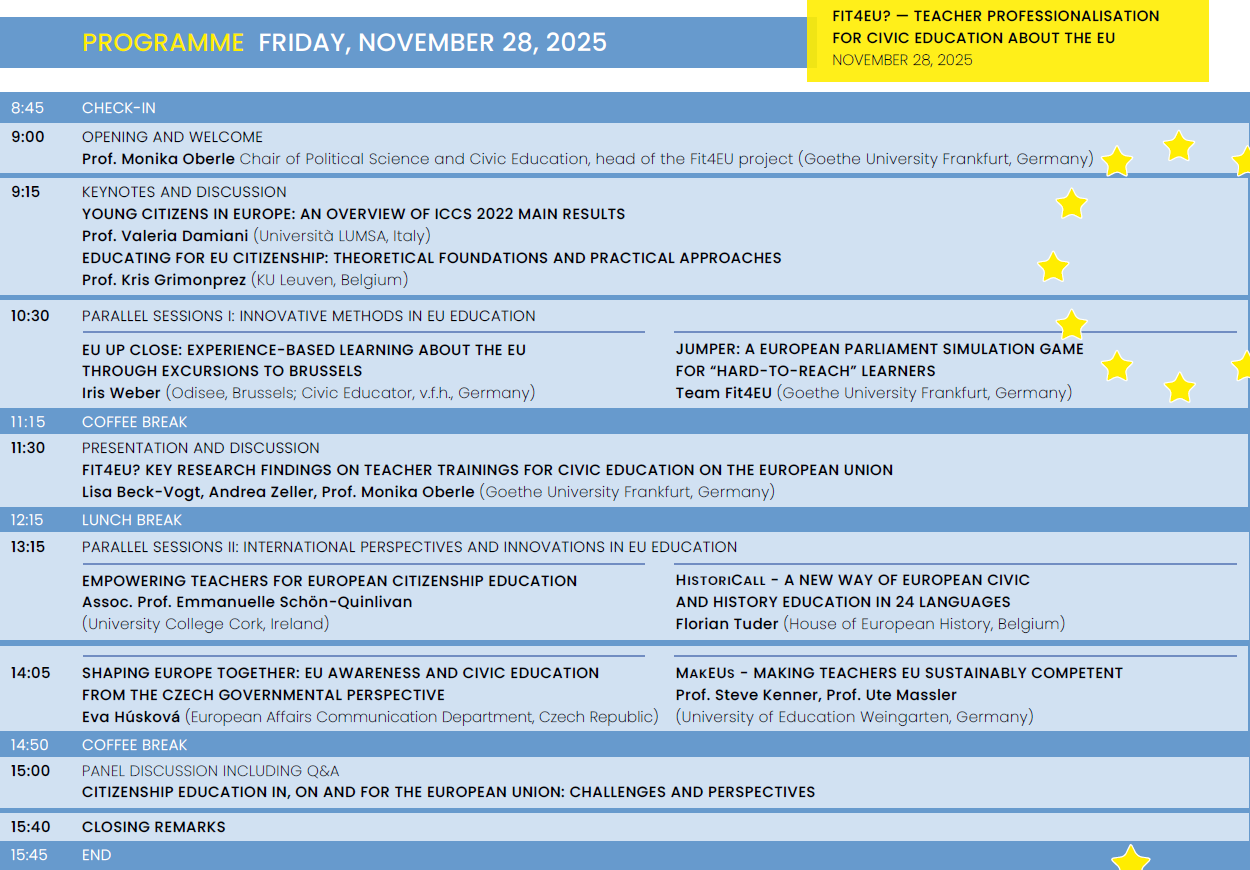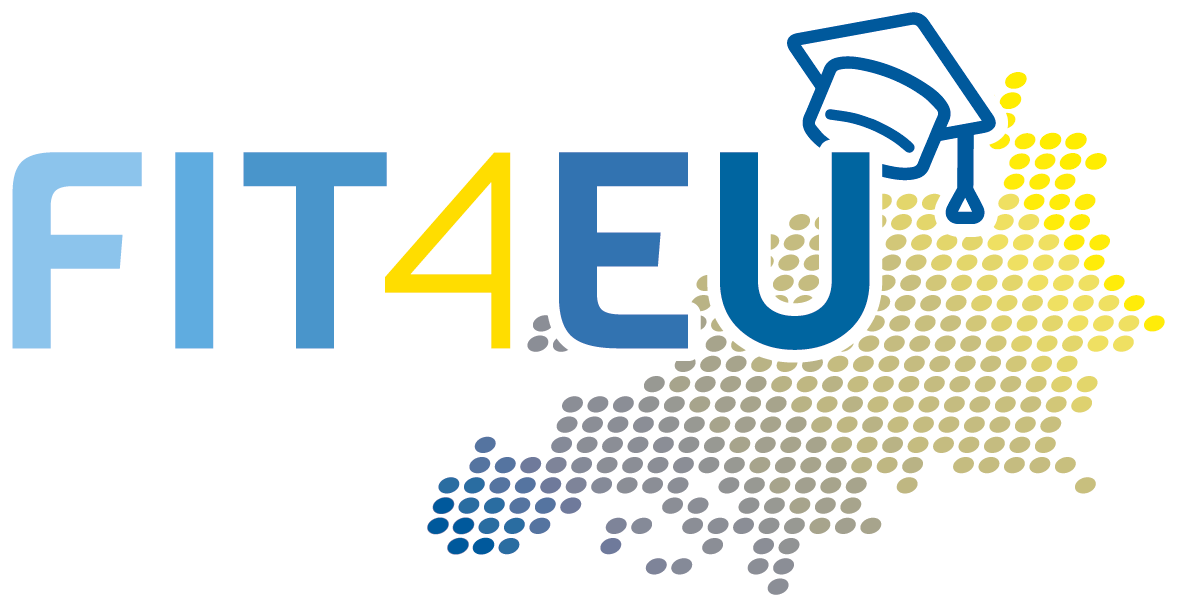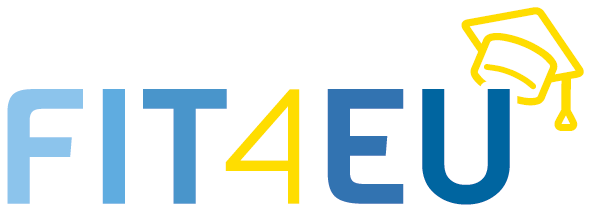Fit4EU
Teacher Trainings for a Target Group-Specific Civic Education on the European Union
The Jean Monnet Project ‘Fit4EU – Teacher Trainings for a Target Group-Specific Civic Education on the European Union’ offered teachers multi-module trainings on how to teach civic education on the European Union from 2023 till 2025. Participants learned approaches that are methodologically diverse, practical, academically grounded, and cognitively activating.
Accompanying systematic research provided new insights concerning the needs, success factors and impact of teacher trainings on (EU) civic education.
Thank you for your interest!
- Provide teachers with professional training in giving students at various types of schools a civic education on the EU
- Inform and prepare students to participate in EU political processes
- Foster networking among German and international civics teachers
- Strengthen educators‘ skills in teaching civic education on the EU in a sustainable manner
- Provide evidence to guide further refinement of current teacher trainings
- Complete two cycles of multi-module, target group-specific teacher trainings tracks
- Organize a summer school for students and practicing teachers
- Provide teaching materials for trainings and classroom
- End with a public conference for anyone interested in the subject matter
- Systematically conduct guided research
The project ‘Fit4EU – Teacher Trainings for a Target Group-Specific Civic Education on the European Union’ is for civics teachers working at various types of schools. The trainings’ aim is to equip teachers with the tools to structure their civics classes on the EU in an academic, student-oriented, and methodologically diverse manner.
Our teacher trainings are developed based on current research findings on European integration, civic education on the EU, and factors shown to make teacher trainings successful. When conveying the learning materials, the training deliberately combines subject-specific and pedagogical elements in a practical manner that allows them to be applied in the classroom. The aim is to empower and motivate teachers to take what they learn and apply it in their civics lessons on the EU.
The trainings are tailored to specific student target groups with the aim to enable teachers to apply the content, methods, and materials taught in their respective teaching environments. The training integrates interactive lessons and practical learning. During the practical phase, teachers are given space to apply, practice and reflect on the teaching methods. In this way, new competency skills are ingrained in their practice.
Goals
- Gain a deeper and up-to-date understanding of the EU
- Expand pedagogical knowledge for practical use
- Learn various approaches of a methodologically diverse, target group-specific civic education on Europe
- Discuss experiences with other civics teachers
- Obtain an official certificate of completion
Choosing the “right” training track for you
The titles of the training tracks according to school types are only intended to give you a starting point. Consideration of the needs of your respective learning groups should guide your choice of training track. The training track 2a/b (Secondary and Vocational Schools) is designed to be particularly low-threshold, e.g. even less text-heavy and somewhat more reduced in complexity. At the same time, track 3a/b (Grammar and Comprehensive Schools) also focuses on relevance to the real world and an action-oriented approach to civics lessons.
Fit4EU Online Conference
Fit4EU? – Teacher professionalisation for civic education about the EU
Nov 28, 2025 | Friday
Online via Zoom
You can register via the Goethe Teachers Academy website https://tinygu.de/Fit4EU-pre-conference or via E-Mail: mail@fit4eu.org.
Participation is free of charge.

This interdisciplinary conference provides a platform for dialogue between research and practice, offering an opportunity to share challenges, successful approaches and methods in the field of civic education on the European Union. The international conference is intended for academics, teachers from all levels of education, non-formal educators, students, policymakers, media professionals and other interested citizens.

If you have any questions or comments, please contact us at mail@fit4eu.org.
Further information can be found in our flyer:

Here you will soon find selected learning materials for the training and for your teaching, as well as additional internet links.











